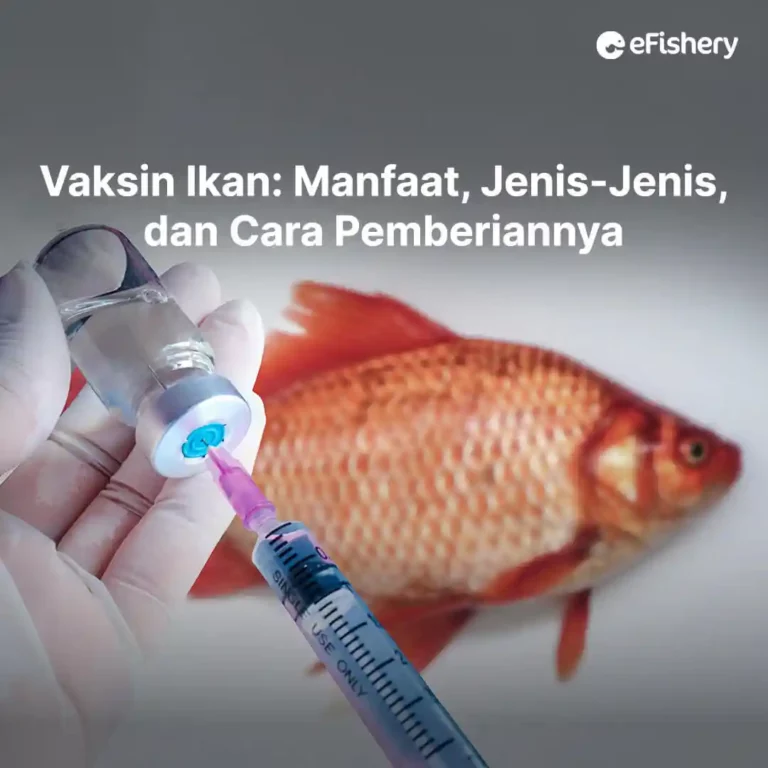Fish vaccines are antigens (microorganisms) that have been weakened or killed and are useful for actively stimulating the immune system of fish. Fish vaccines exist because there are many fish diseases that have the potential to cause outbreaks. This requires fish health management by preventing disease through vaccination.
To deal with various diseases that infect fish, fish vaccines have various types with different benefits. Want to know the types of fish vaccines and their benefits? Read more in this article!
Fish Immunity
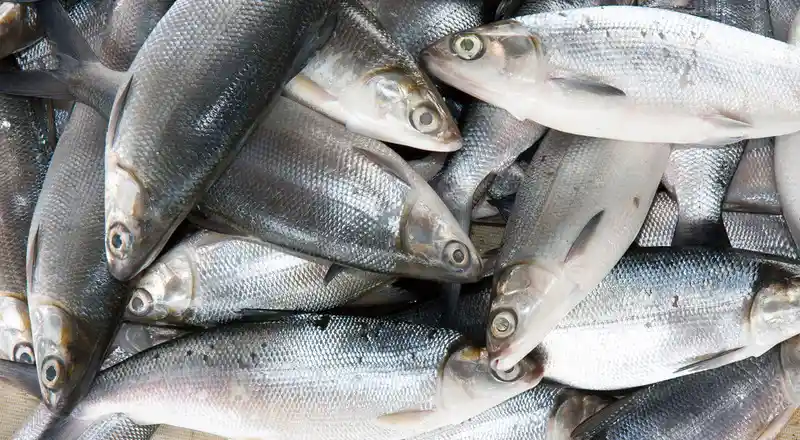
Just like living things in general, fish also have an immune system that can protect them from harmful substances and disease-causing germs. The fish immune system consists of specific and non-specific defense systems.
The non-specific defense system of fish is played by macrophages and granulated leukocytes. When fish are infected with a pathogen, non-specific immune mechanisms work to stop the infection. However, if the non-specific immune mechanisms are not working effectively, the infection will progress and may cause symptoms of the disease.
This will trigger a response from the specific immune system. If the fish can survive with a specific immune system, then specific antibodies will form on the pathogen and the fish's memory cells.
The strength of the fish's immune system is influenced by several factors, one of which is the stress level of the fish. When under stress, fish will react by secreting stress hormones (corticosteroids) in sufficiently high amounts, where the hormone is known as an immunosuppressive element. Immunosuppression will suppress the work of the immune system in the fish's body so that the strength of the immune system will decrease.
In addition, the nutritional balance which includes the adequacy of the quality and quantity of feed is very influential on the fish's immune system. Fish with unbalanced nutrition will lose their immune system so they get sick easily.
Benefits of Vaccines in Fish
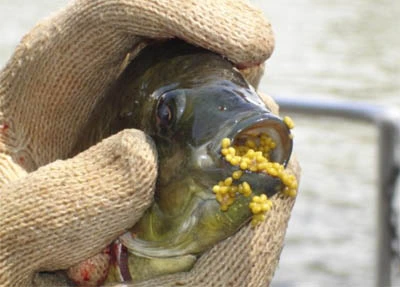
One way that you can use to increase the immunity of fish is by giving the right fish vaccine. Vaccines have very high effectiveness in preventing disease because vaccines work by increasing the body's immunity in fish.
Vaccines can be the right choice, especially for those of you who don't want to use chemicals, drugs, and antibiotics because of their side effects which are not good for the aquatic environment. The use of vaccines is very efficient because it can raise the fish's immune system with only 1 or 2 vaccinations.
Vaccines in fish are useful for reducing mortality due to potential pathogen infections, reducing the use of antibiotics, and minimizing the emergence of resistance of microorganisms to antibiotics. In addition to its many benefits, the use of vaccines is also very beneficial because it does not cause side effects on fish, in contrast to the use of antibiotics which will have negative effects on fish.
Types of Fish Vaccines
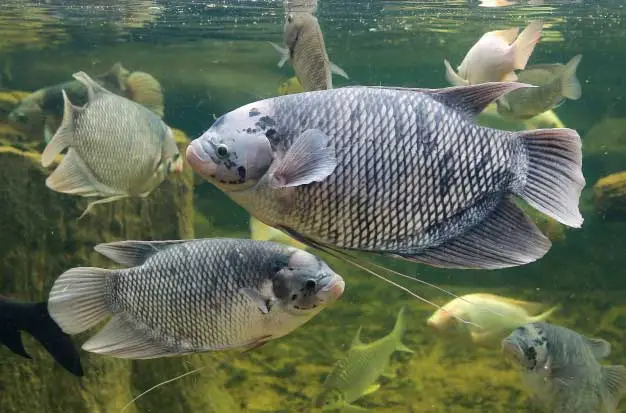
The process of vaccination in fish farming is expected to make a significant contribution to increasing production. However, if you don't give the right fish vaccine, what will happen is a decrease in production, not an increase. Therefore, before vaccinating, let's find out which types of vaccines are good for fish!
1. Killed Vaccine (Inactivated Vaccine)
Inactivated vaccine is a type of vaccine containing a virus that has been killed by heat, radiation or chemicals. This process keeps the virus intact, but does not have the ability to reproduce. This vaccine does not cause disease in the body of the vaccinated fish, but is still immunogenic or capable of bullying and stimulating the formation of fish antibodies.
Inactivated vaccines usually come in the form of a liquid emulsion and contain antigen and oil adjuvants (solvent) to prolong the duration of immunity. The dead pathogens most commonly used in inactivated vaccines are intact bacteria which are inactivated by formalin or heating.
Inactivated vaccines are considered effective in inducing humoral responses (antibodies), but less effective in stimulating cellular and mucosal immunity. An example of an inactivated vaccine is the Vibriosis vaccine which was discovered in Europe in the 1970s. This vaccine is known to be very effective in killing bacteria Aeromonas hydrophila because it contains 0.03% formalin.
2. Live Vaccine (Active Vaccine)
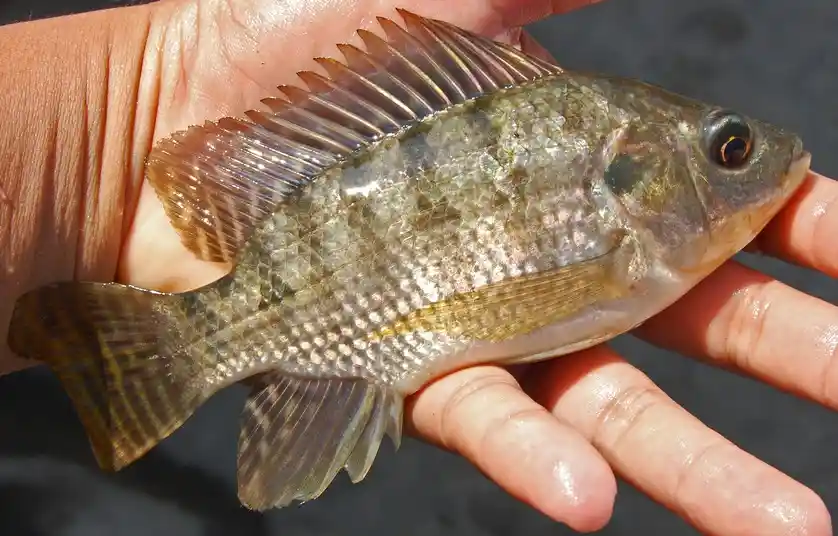
Active vaccines are vaccines containing live viruses that are attenuated by a pathogen, but do not cause disease. This vaccine serves to bully the formation of local immunity with faster absorption because it has been exposed to antigens for a long time. Active vaccines are usually freeze-dried and must be dissolved in a certain solvent (diluent).
This type of vaccine is considered effective because it can reduce the possibility of the pathogen to become malignant again. In active vaccines, genetic engineering in the form of virulence genes is removed so that the pathogen becomes less malignant, for example KV-3 (Kovac).
3. Subunit Vaccine (Recombinant Vaccine)
Recombinant vaccines are vaccines that are partly composed of pieces of viral DNA that are developed by combining the DNA of other microorganisms through genetic engineering. In the manufacture of recombinant vaccines, the microorganisms used are polysaccharide capsules, exotoxins, or genetically engineered recombinant proteins. This vaccine is made by duplicating immunogenic genes into bacteria that function as factories for the production of immunogenic proteins.
Factors to Consider in Fish Vaccination
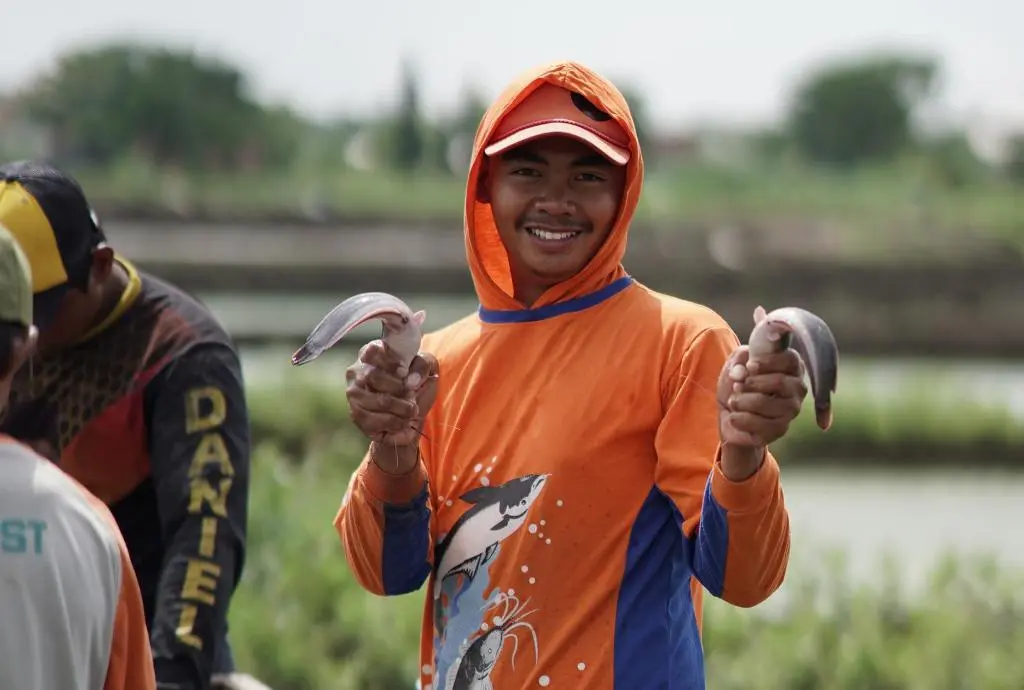
Even though vaccination has a very good impact on fish health, you should not do it carelessly. Vaccination has several things that you must pay attention to so as not to endanger the fish, such as choosing the type of vaccine to be used. You are required to use vaccines that are safe for fish, the cultivation environment, and are specific for certain pathogens. Vaccines must also be able to protect fish for a long period of time (at least 1 cultivation cycle) and be registered with the Ministry of Maritime Affairs and Fisheries.
However, it is not only the type of vaccine that cannot be arbitrary, the fish that are vaccinated also have certain requirements. Fish that can be vaccinated are fish that are at least 1 week old after stocking. This is because fish that are less than 1 week old have important organs that are not functioning properly. You must also ensure that the fish to be vaccinated are healthy fish, the pool water temperature is above 25 °C, and free from pollutants.
How to send and store vaccines must also be considered because vaccines are often damaged during the shipping and storage process. Damage to vaccines often occurs due to requirements when transportation and storage are not met. Most types of conventional vaccines must remain in humid temperatures. Therefore, you must follow the shipping and storage methods recommended by vaccine manufacturers. Errors in vaccine transportation and storage can reduce or eliminate its effectiveness, and can even have a negative impact if it is still given to fish.
How to administer vaccines to fish
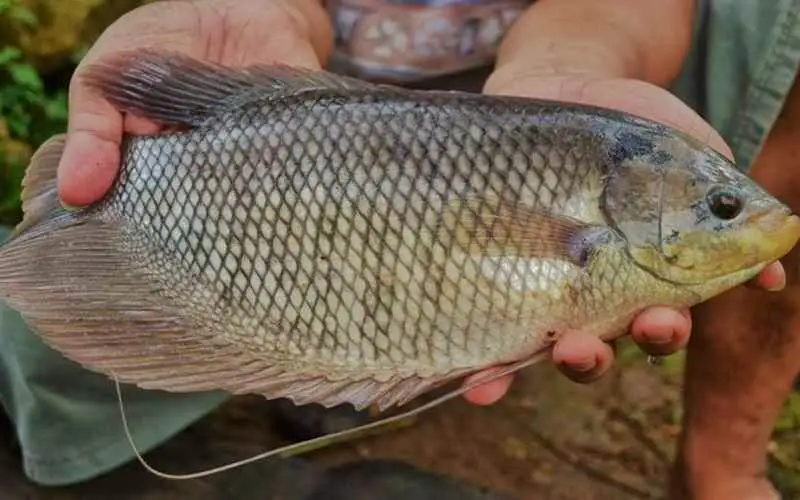
At least, there are 3 ways that you can use in administering vaccines to fish. These three ways are:
1. Soaking
This technique of administering the vaccine is very suitable for large numbers of small fish. By soaking, the vaccine can be dissolved in a concrete tub, aquarium or plastic bucket. If you use an inactivated vaccine, the soaked water can be disposed of directly through the drain. However, if you use an active vaccine or live vaccine, the used soaking water can be treated as a disinfectant before being disposed of.
2. Injection
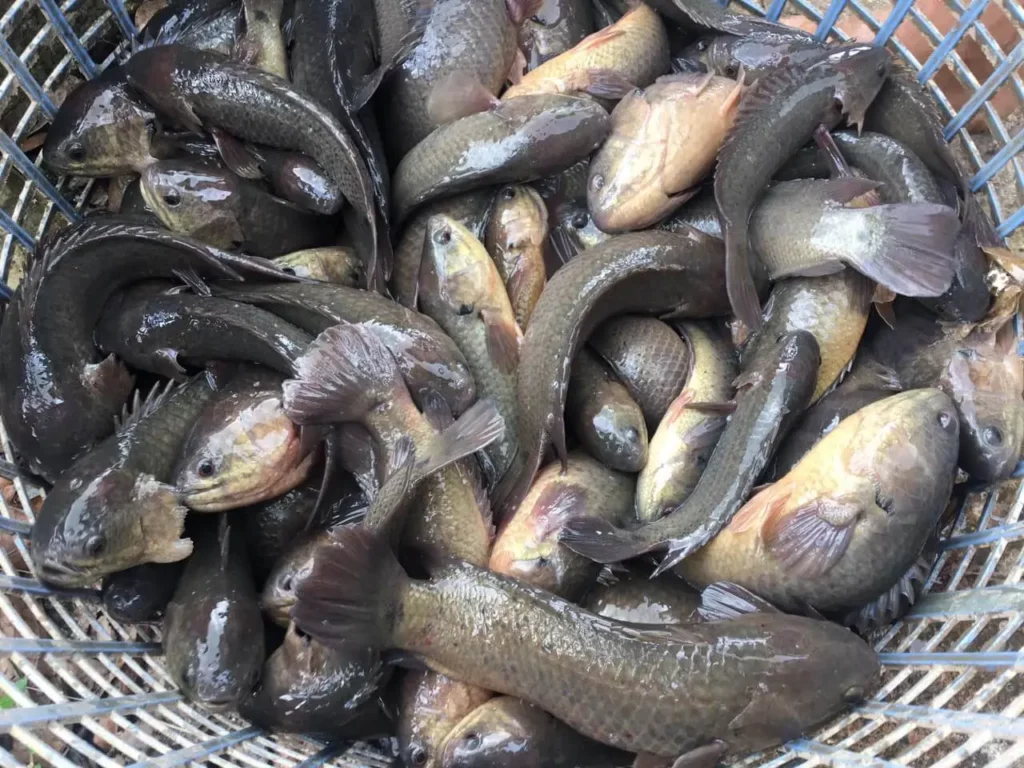
Vaccination by injection method is carried out in 2 ways, namely injection through the abdominal cavity and injection through the muscle or flesh of the fish. Injections through the abdominal cavity are usually done in the abdomen which is located between the two pelvic fins with a needle angle of 30°.
Meanwhile, injection through the fish meat is done on the back of the fish. Injection through the flesh of fish with scales is slightly different, fish with scales are injected between the third and fifth scales from the head with an angle of inclination of the syringe 30-40°.
The size of the syringe used in the fish vaccination process must be adjusted to the size of the fish and the dose. You also need to ensure that vaccination in this way is anatomically safe or does not cause injuries that lead to infection in fish.
3. Feed
The method of vaccination that is carried out simultaneously with the provision of feed is only intended for fish that require re-vaccination. The technique of mixing the vaccine with feed is done by diluting the vaccine several times with clean water, then inserting the vaccine into the sprayer. If so, the vaccine can also be sprayed evenly on the fish feed.
Get Support for Fish Farming on eFisheryKu
Vaccination should not be underestimated and must be done as soon as possible. If the fish are vaccinated too late, their body resistance will be very weak and they will get sick easily. In many cases, sick fish due to weakness of the body will die quickly and will cause losses in your cultivation.
Tapi kini, Bapak/Ibu tidak perlu khawatir karena sekarang sudah ada aplikasi serba ada eFisheryKu. eFisheryKu is the application of eFishery which is the mainstay of cultivators in Indonesia from the beginning of the cultivation cycle to harvest. eFisheryKu menyediakan pakan ikan berkualitas dengan harga terbaik di fitur Buy Feed, bantuan akses ke lembaga keuangan terpercaya untuk mendukung bisnis budidaya Bapak/Ibu dengan Kabayan, dan tempat menjual ikan hasil panen Bapak/Ibu dengan harga terbaik di fitur Fish Stall. Besides that, eFisheryKu juga sering melakukan diskusi dengan ahli budidaya melalui webinar gratis.
Menarik sekali bukan? Yuk, downloads eFisheryKu sekarang dengan klik tombol di bawah ini!
Questions Regarding Fish Vaccines
Fish vaccines are antigens (microorganisms) that have been weakened or killed and are useful for actively stimulating the immune system of fish.
Yes, fish can be vaccinated through vaccination which is useful for actively increasing the immunity of the fish's body against a disease. So, if later the fish are exposed to these pathogenic microorganisms, the fish's body will be able to fight the existing infection.
- https://dkpp.bulelengkab.go.id/informasi/detail/artikel/cara-memberikan-vaksin-untuk-ikan-39
- https://journal.ipb.ac.id/index.php/jai/article/view/11133/PDF
